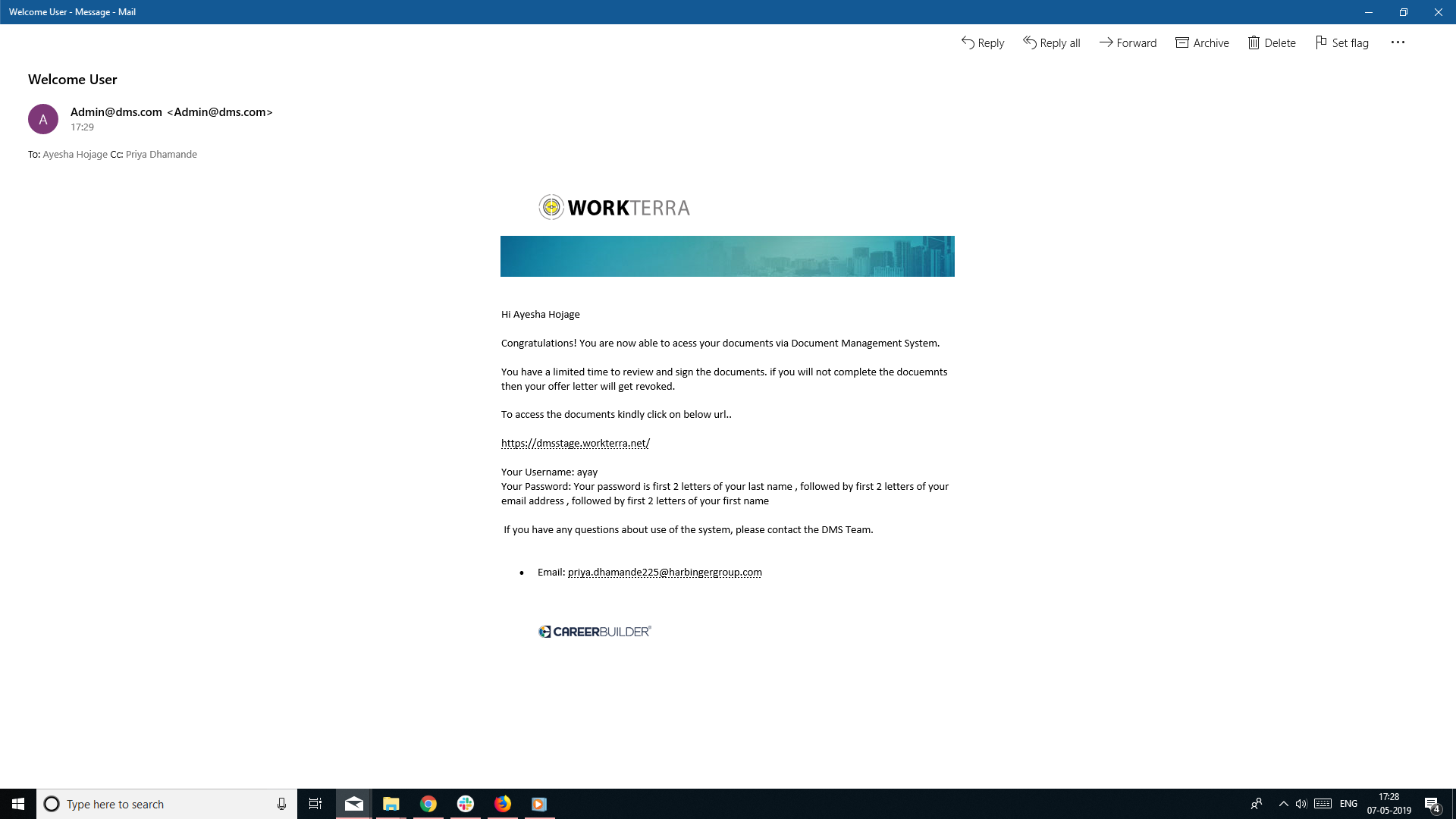5 Ways to Track Hiring Paperwork Progress

Managing hiring paperwork can be a daunting task, especially in large organizations where the number of applicants and hires can grow significantly. Keeping track of each application's status, ensuring all documents are received, and managing compliance can be overwhelming without a solid system in place. Here are five effective ways to streamline your hiring paperwork tracking processes:
1. Implement a Document Management System (DMS)

A Document Management System (DMS) like DocuWare, FileHold, or M-Files can be an invaluable tool for organizing and tracking hiring documents. A DMS allows for:
- Digital storage of documents, reducing physical clutter
- Automated workflows for document approval and routing
- Version control to avoid confusion with multiple document iterations
- Enhanced security measures to protect sensitive applicant information
📝 Note: Selecting the right DMS is crucial. Consider system integration, scalability, and user-friendliness when making your choice.

2. Utilize Spreadsheets and Excel Tracking
If a full-blown DMS seems too robust for your needs, spreadsheets like Microsoft Excel or Google Sheets can still be incredibly effective:
- Track each applicant’s status with color coding
- Create a dashboard with real-time updates on hiring progress
- Use formulas to calculate response times and track document submission deadlines
Here’s how you might organize an Excel tracking system:
| Applicant Name | Date Applied | Status | Documents Submitted | Comments |
|---|---|---|---|---|
| John Doe | 12 Jan 2023 | Interview Pending | Resume, References | |
| Jane Smith | 15 Jan 2023 | Awaiting References | Resume | Call references |
3. Adopt Project Management Software
Project management tools like Trello, Asana, or Monday.com can be adapted to manage hiring paperwork:
- Create boards for different recruitment stages: Application, Interview, Offer, and Onboarding.
- Assign tasks related to document collection and verification to team members
- Set deadlines and automate reminders for follow-ups

4. Use HRIS or ATS Systems
An HR Information System (HRIS) or an Applicant Tracking System (ATS) like Workday, BambooHR, or Greenhouse can automate much of the tracking process:
- Automated job postings
- Resume parsing
- Integrated workflow for document collection and onboarding
- Customizable reporting for analytics on hiring process efficiency
5. Regular Audits and Compliance Checks
Ensuring compliance with legal standards and conducting regular audits can prevent oversight:
- Schedule periodic reviews of hiring records
- Implement checklists for required documentation
- Ensure adherence to laws like EEOC guidelines, FCRA, and OFCCP regulations
By adopting one or more of these methods, your organization can significantly enhance the efficiency of its hiring process. Tracking paperwork becomes less of a chore and more of a seamless part of your recruitment strategy. Remember, the goal is to streamline these processes not just for efficiency, but to also ensure a positive experience for candidates, which can influence their decision to join your company.
In the end, the recruitment and hiring process is not just about filling a vacancy; it's about building the future of your company. Effective management of hiring paperwork reflects your organization's commitment to professionalism, organization, and the value you place on each employee's journey from applicant to team member.
What is the most cost-effective method for tracking hiring paperwork?

+
Spreadsheets like Excel or Google Sheets can be the most cost-effective solution for small to medium-sized organizations with limited budgets.
How can an HRIS improve the hiring process?
+
An HRIS can automate tasks such as job postings, resume parsing, and managing workflows for document collection, which reduces manual work and increases accuracy.
What are the key features to look for in a DMS for hiring paperwork?
+
Key features include secure storage, version control, automated workflow processes, integration capabilities, and compliance with data protection regulations.
How frequently should audits be conducted to ensure compliance?
+
Audits should be conducted at least annually, with more frequent checks during high recruitment periods or when there are changes in regulations.